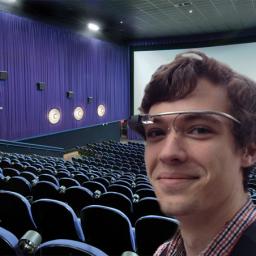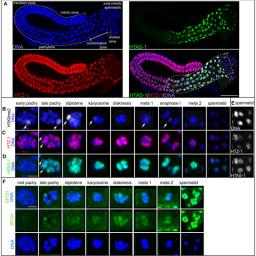lifescience reports that a plant based compound triggers the conversion of white fat into brown fat. The difference between white and brown fat is, that while white fat stores energy, brown fat is used to generate heat to keep the body warm. Consequently mice, when treated with this compound, generated more heat when they were exposed to cold air and therefore burned more calories.
Author Comment: I am skeptical. Articles, which claim some breakthrough regarding obesity, are available a dime a dozen. Usually directly or indirectly some magical compound is mentioned, which if marketed helps for sure... the account of the maker of this compound. Before I'd trust in pharmaceutical solution, I'd like to see an explanation for an effect, which is described here:
http://www.nature.com/news/2010/101124/full/news.2010.628.html Not only humans are getting fatter and fatter, but lab animals are too, despite a very controlled dietary plan which often does not change for years.
 Reuters is reporting a drop in usage of Google Glass.
Reuters is reporting a drop in usage of Google Glass. Turns out:
After two years of popping up at high-profile events sporting Google Glass, the gadget that transforms eyeglasses into spy-movie worthy technology, Google co-founder Sergey Brin sauntered bare-faced into a Silicon Valley red-carpet event on Sunday.
Google Glass may be losing its mojo as users struggle to accept obviously creepy spy aspects of the new technology. A quick Google search turns up things like:
- TechCrunch: MPAA Bans Google Glass And Other Wearable Cameras From Movie Theaters
- Mew York Post: The revolt against Google 'Glassholes'
- Gizmodo: Is Google Glass Dying?
That's an inauspicious start to a new technology, and certainly the price tag doesn't help either: the test version of Google Glass comes with a $1,500 price tag. Says Reuters:
While Glass may find some specialized, even lucrative, uses in the workplace, its prospects of becoming a consumer hit in the near future are slim, many developers say.
Of 16 Glass app makers contacted by Reuters, nine said that they had stopped work on their projects or abandoned them, mostly because of the lack of customers or limitations of the device. Three more have switched to developing for business, leaving behind consumer projects.
[Author note: My personal experience? Google Glass is a difficult market even for business developers. As freelancing software developer I asked several of my customers what they think about possible Google Glass solutions. I pointed out some ideas how Google Glass could be used to benefit their business. Though the ideas were generally well received, they usually were answered with: Sounds very good, perhaps in the future. We are watching Google Glass. We thought about it ourselves, but don't think that at this point the necessary investments will pay off.
My advice to Google? Cut the price. For $150 I'd take the risk. Many nerd developers would. Google Glass needs a better reputation and a few killer apps. Only Google has the money and interest to improve the reputation of Google Glass. To find a killer app, it needs an as large as possible developer base. One does not get the latter with a $1500 product with a questionable future.]
[edited 2014-11-17 15:01 GMT: inauspicious, not auspicious]
 TechCrunch
TechCrunch reports:
MCX (Merchant Customer Exchange), the coalition of retailers including Walmart, Best Buy, Gap and others, who are backing a mobile payments solution CurrentC meant to rival newcomer Apple Pay, has been hacked.
CurrentC is still in its pilot phase. Only emails of the early app testers have been stolen. No payment data or other personal informations. Furthermore since the project is still in the pilot phase, many of those emails belonged to dummy accounts.
Since there might be a war coming between CurrentC, Apple Pay, Google Wallet, and perhaps the established credit card companies, it would be easy to construct a nice conspiracy theory. However:
Never ascribe to malice that which is adequately explained by incompetence. And even incompetence does not describe it correctly. The developers of each of those systems on the one side are probably vastly outmatched by the black hats, who try break it, on the other side. And the black hats just need to find one single implementation error, while the developers have to anticipate everything. I cases like this, where real money can be made, the
Linus's Law is definitely applicable.
What does it mean for the customers? They should be extra careful. Neither Apple, nor Google, nor MCX have much experience as payment service providers. Their technologies are new and most certainly will have weaknesses, which is bad. But also for the courts these system will be uncharted waters. For a duped user this might even be worse. So before using one of those shiny new and convenient payment options: Read the fine print in the contracts. Check who carries the risk and the burden of proof in case of a misuse.
Does the worsening galactic cosmic radiation environment observed by CRaTER preclude future manned deep-space exploration? That is the conclusion of of a recently published paper that posits
the recent decrease in solar activity has led to increased incidence of cosmic rays, which are dangerously radioactive. That may just put a damper on anyone interested in organizing manned exploration of the Red Planet.
The Sun and its solar wind are currently exhibiting extremely low densities and magnetic field strengths, representing states that have never been observed during the space age. The highly abnormal solar activity between cycles 23 and 24 has caused the longest solar minimum in over 80 years and continues into the unusually small solar maximum of cycle 24. As a result of the remarkably weak solar activity, we have also observed the highest fluxes of galactic cosmic rays in the space age, and relatively small solar energetic particle events. We use observations from the Cosmic Ray Telescope for the Effects of Radiation (CRaTER) on the Lunar Reconnaissance Orbiter (LRO) to examine the implications of these highly unusual solar conditions for human space exploration. We show that while these conditions are not a show-stopper for long duration missions (e.g., to the Moon, an asteroid, or Mars), galactic cosmic ray radiation remains a significant and worsening factor that limits mission durations.
Very interesting and at least for me counter intuitive. I would have thought: Less solar activity means less radiation. But it seems that the solar wind normally has the effect of reducing the amount of dangerous cosmic radiation that can reach the inner solar system. But to that, point, the article points out:
While particles and radiation from the Sun are dangerous to astronauts, cosmic rays are even worse, so the effect of a solar calm is to make space even more radioactive than it already is.
Following up on last week's
article about offspring and mothers' previous sexual partners (in insects, anyway), new research now sheds some additional light on the multi-layered process of how a sperm and egg pass along information needed for successful reproduction.
As described in an article published in the journal PLOS Genetics:
Though one layer is the DNA code that is transferred, the new study identifies information not encoded by DNA, a so-called "epigenetic" layer of information that helps the cell interpret the genetic code.
In insects this additional "epigenetic" layer of information apparently can come from a previous mate. The question if such or similar mechanisms can also exist in higher organisms, e.g. also in humans, might be far fetched, but not that far, that it precludes a more thorough research. Clearly, there are still plenty of unknown factors in human and non-human reproduction: an area ripe for further research.


